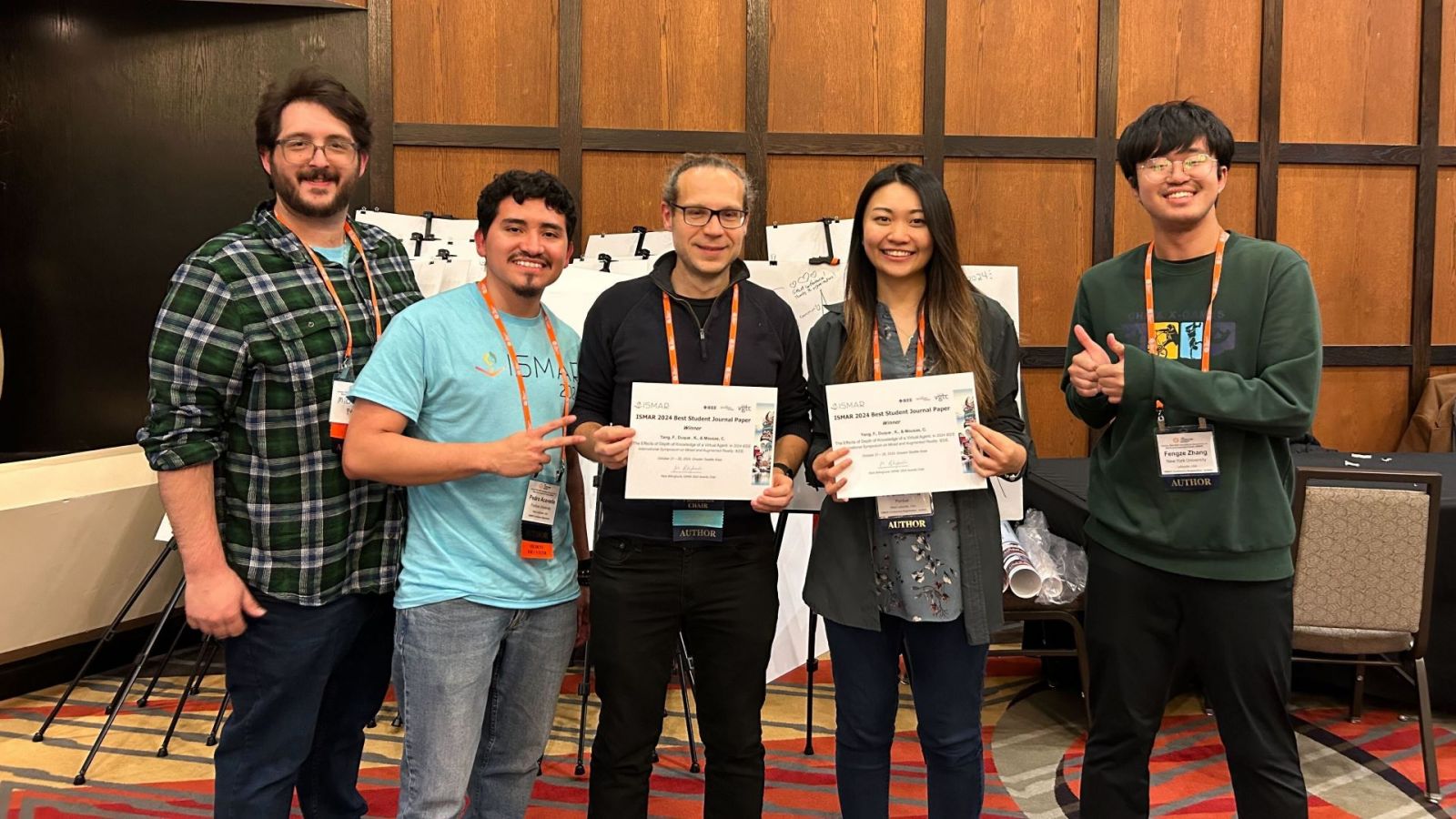
Christos Mousas, Associate Professor of Computer Graphics Technology (CGT) and Director of the Virtual Reality Lab at Purdue Polytechnic, along with Fu-Chia Yang, a Ph.D. student, and Kevin Duque, an exchange student from Tecnológico de Monterrey, received the Best Student Journal Paper award at the IEEE International Symposium on Mixed and Augmented Reality (ISMAR) held in Seattle, Washington, from October 21–25, 2024. ISMAR is regarded as one of the top conferences in the virtual reality field, classed as an A* conference and highly esteemed among VR researchers and practitioners.
Their award-winning paper, “The Effects of Depth of Knowledge of a Virtual Agent,” explores the impact of a virtual agent’s knowledge depth on user perception, specifically within immersive virtual reality environments. The paper was among the top 10% accepted to the IEEE ISMAR conference, where it was published in the IEEE Transactions on Visualization and Computer Graphics—the leading journal in VR research, with a notable impact factor of 4.7.
Advancements in conversational AI and user interaction
The study focused on enhancing interactions between users and virtual agents, utilizing varying levels of agent knowledge to assess how this influences perceptions of intelligence, rapport, and overall engagement. Using a VR application developed in the Unity game engine with an Oculus Quest 2 headset and OpenAI’s GPT-4 integration, the researchers conducted experiments involving 27 participants. Participants interacted with a virtual agent whose depth of knowledge varied across low, medium, and high settings in the domain of game development. The findings suggested that agents perceived as more knowledgeable were rated higher in terms of perceived intelligence and factuality, indicating the importance of agent expertise in creating engaging and realistic virtual experiences.
By examining how users respond to agents with different levels of knowledge, the study offers guidance for designing conversational agents capable of delivering more meaningful and tailored interactions within VR.
Additional information
